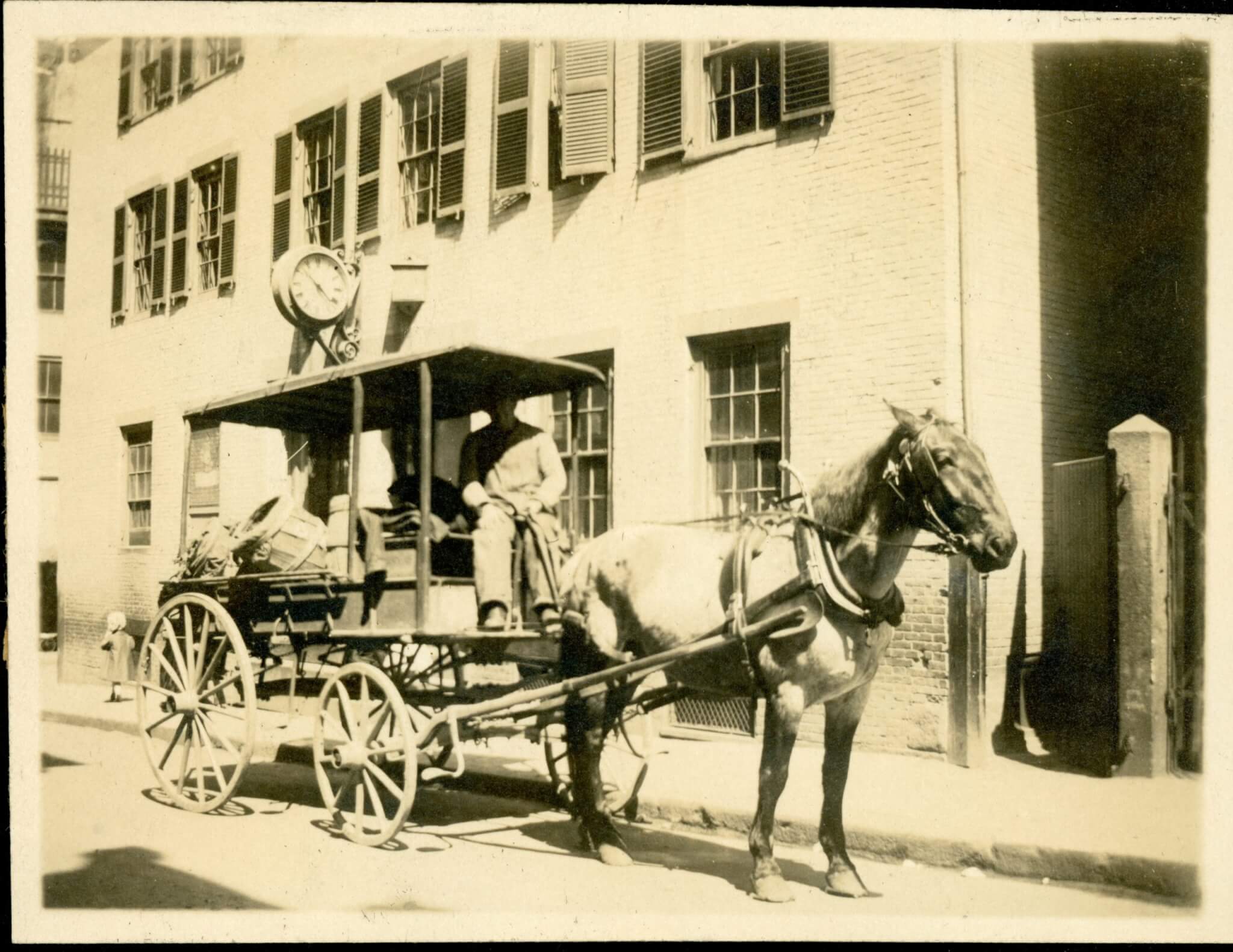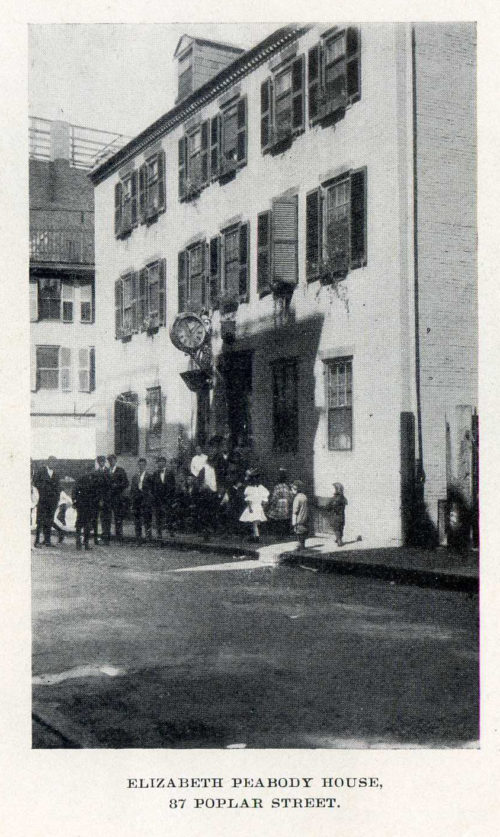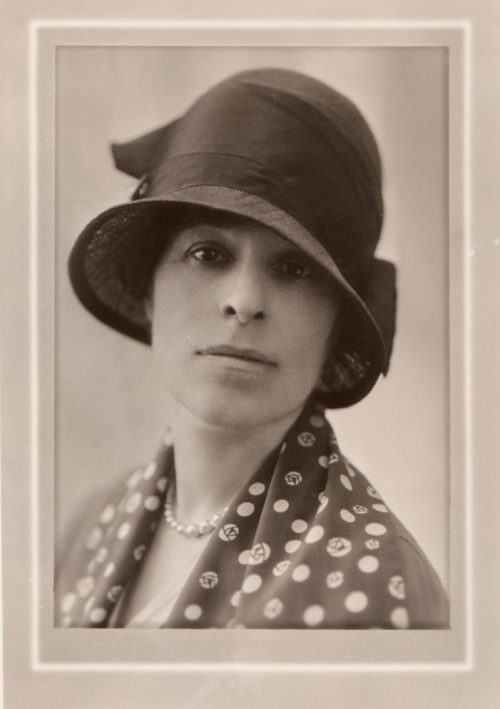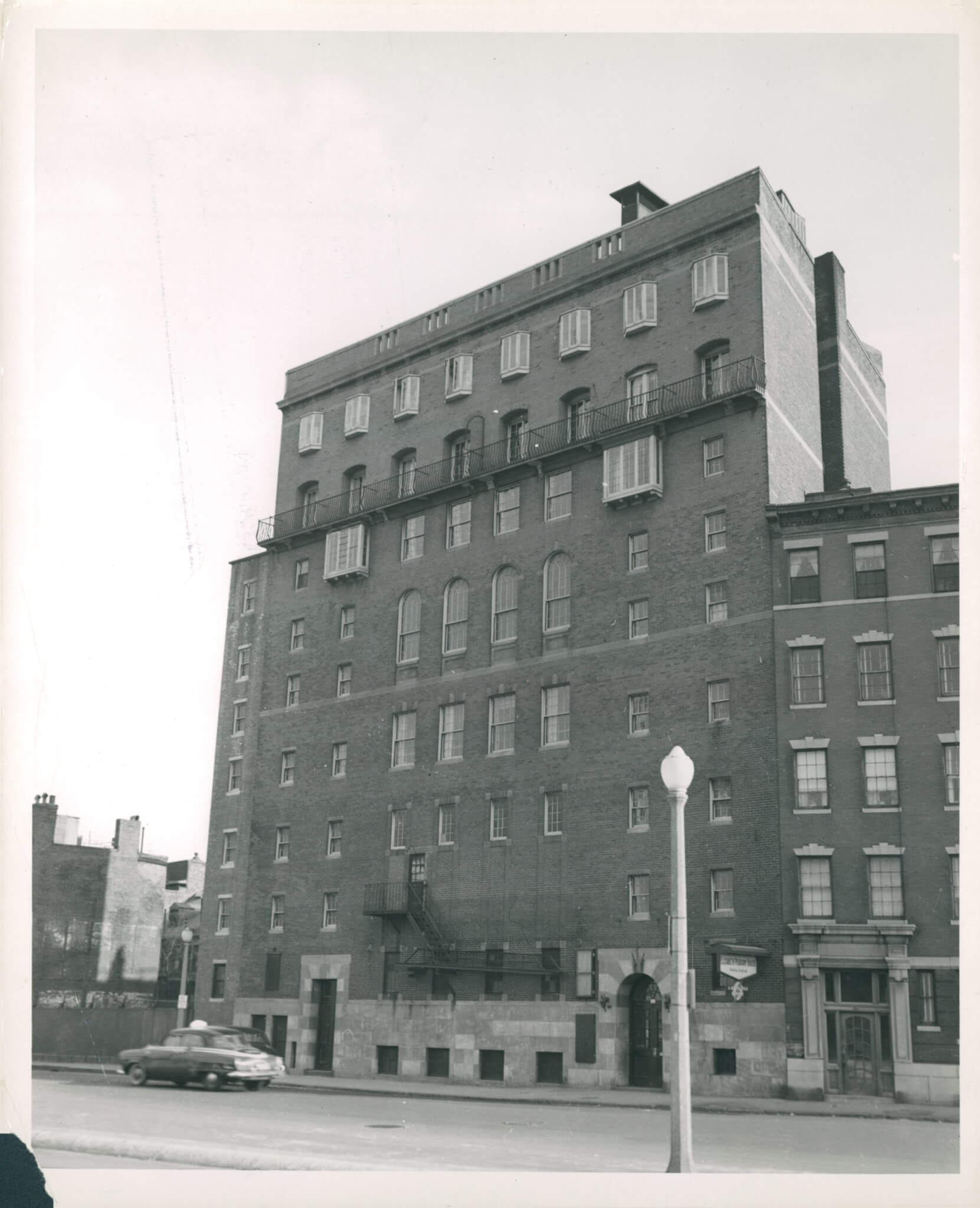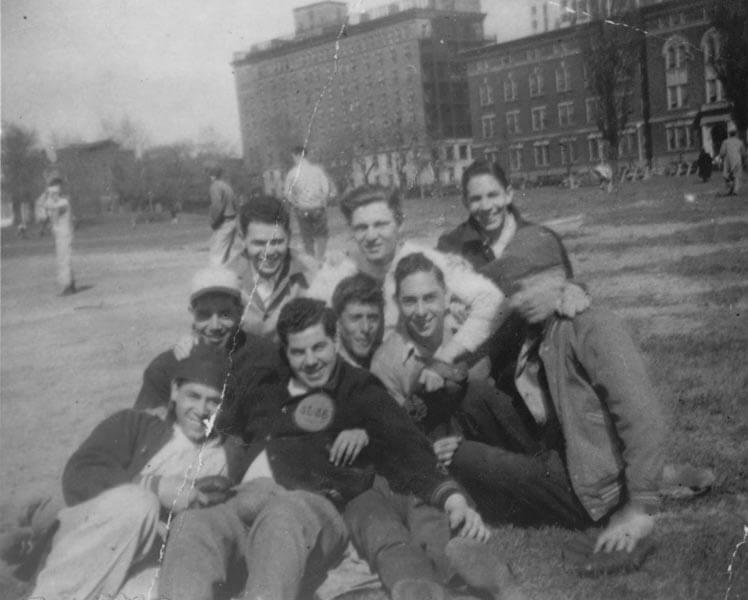The Elizabeth Peabody House
One of the West End’s most prominent settlement houses, the EPH served as a community center, education space, and more for more than half a century in the West End, and continues its work today in Somerville.
Located at 156 Chambers Street, the Elizabeth Peabody House is one of Boston’s first settlement houses. Settlement houses began popping up in the 1880s to connect immigrants and the poor to education and social services. When the Elizabeth Peabody House (EPH) was established in 1896, the West End’s population was largely Jewish with a pocket of Irish immigrants. The house’s foremost function was as a kindergarten for the community.
The settlement house derived its name from Elizabeth Palmer Peabody (1804-1894). She is known for her activism as well as opening the first English-speaking kindergarten in the US in 1860 at a time when educating children under the age of six was not the norm. A leader in educational reform, Peabody was a suffragette, abolitionist, and advocate for Native American rights.
The building on Chambers Street came to serve locals beyond its kindergarten students. Even in its first year, it incorporated a daycare and recreation space for community use. By 1901, the need for more space was evident and the Elizabeth Peabody House moved to 87-89 Poplar Street, eventually expanding into 6 Auburn Street.
The EPH made headlines when in 1902, it opened the country’s first pasteurized milk station. Seen as a turning point in making infant health education more accessible, the station provided a valuable service for local mothers and became the model for many more milk stations. The milk dispensary was often a gateway into the rest that the Elizabeth Peabody House had to offer, with immigrant mothers also seeking English lessons.
The house was always responding to the needs of its constituency. In 1902, settlement hosted the Young Hebrew Charities Club and provided space for a young woman to teach a Jewish history course. Due to popular demand, the EPH created a dance class for married Jewish women in 1905. The Elizabeth Peabody House was unique for its many programs dedicated to girls and women.
In 1909, Eva Whiting White began what would become a 35-year-long journey running the Peabody House. She was one of the first people to earn a degree in social work in the world and she shaped the settlement house as well as the greater Boston community. The EPH began offering free school lunch in 1910.
In 1912 the Elizabeth Peabody House relocated to 357 Charles Street, to a seven-story building with plenty of room for an expanded kindergarten, in addition to a library, community theater, and gymnasium. The ground floor was the site of the milk station, nurses’ quarters, and the pool. The first and second floors were occupied by the Peabody Playhouse, with stage and balcony. The third floor held the kindergarten, print shop, and space for the male workers. The fourth floor boasted the gym, showers, and dressing rooms, as well as classrooms for basketry and carpentry. The fifth floor, known as the Girl’s Department, had classrooms for domestic science, dressmaking, and even housekeeping, the last of which was designed to resemble a tenement. The sixth and seventh floors contained the kitchen, dining facilities, lounge, and residents’ rooms.
Since 1916, when 29 acres of land in Sharon, Massachusetts were donated to establish a summer camp, children of the EPH turned to Camp Gannett for summer activities outside of the city. The camp is named for one of the first women to fight in the American Revolution, while disguised as a man. Still operating today, the camp continues to serve the Elizabeth Peabody House community.
Actor Leonard Nimoy (1931-2015), best known for playing Spock in Star Trek, got his start at the Elizabeth Peabody House playing Gretel in Hansel and Gretel. Born in the West End into a Yiddish speaking home of parents from Iziaslav (now Ukraine), Nimoy lauds the Elizabeth Peabody House for introducing him to the stage, his brother to science, and countless other children to their passions.
In 1956, due to urban renewal, the Elizabeth Peabody House moved once again to Somerville where it continues to enrich the lives of youth and serve the community through the emergency food pantry, preschool, after-school, and community programs.
Article by Susan Janowsky


